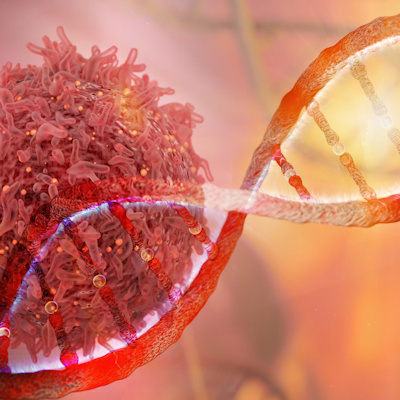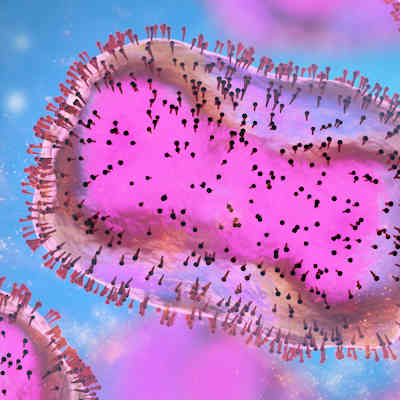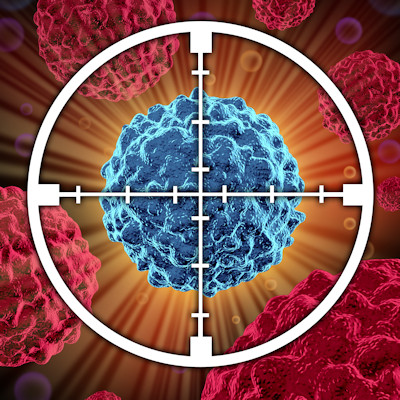 Atomic AI closes $35M Series A financing
Atomic AI closes $35M Series A financing
Biotech firm Atomic AI recently announced it the closing of a $35 million Series A round led by Playground Global, with participation from 8VC, Factory HQ, Greylock, NotBoring, AME Cloud Ventures, GitHub’s ex-CEO Nat Friedman, Doug Mohr, Curai CEO Neal Khosla, and UC Berkeley Professor and Arc Institute co-founder Patrick Hsu. Read More
 Mixing cancer drugs in nanoparticle combinations improves efficacy in mice
Mixing cancer drugs in nanoparticle combinations improves efficacy in mice
Using polymer nanoparticles to carry multiple cancer drugs achieves better outcomes than administering the combination of therapeutics without a delivery vehicle, according to preclinical research published on 26 January in Nature Nanotechnology. Read More
 'Living medicine' for drug-resistant lung infections
'Living medicine' for drug-resistant lung infections
Researchers have engineered a bacterium that serves as a “living medicine” to treat antibiotic-resistant lung infections -- the leading cause of hospital mortality. The research, published January 19 in the journal Nature Biotechnology and supported through CaixaResearch Health, focused on the antibiotic-resistant bacterium Pseudomonas aeruginosa, a common source of difficult-to-treat hospital infections. Read More
 Machine learning models predict release profile to accelerate drug development
Machine learning models predict release profile to accelerate drug development
Machine learning models have predicted the drug release profiles of long-acting injectable medicines, suggesting that the algorithms can accelerate the development of a promising class of therapies. Read More
 Wyss Institute launches RNA therapeutics startup EnPlusOne Biosciences
Wyss Institute launches RNA therapeutics startup EnPlusOne Biosciences
Wyss Institute at Harvard University has partnered with Northpond Labs to launch EnPlusOne Biosciences. The startup aims to bring versatile, scalable RNA synthesis technology to market, with the goal of unlocking the development of new RNA drugs, vaccines, and gene-editing therapies. Read More
 Functional genomics reveals gateway to intracellular targets for large molecules
Functional genomics reveals gateway to intracellular targets for large molecules
Complementary genome-scale, chemical-genetic approaches have revealed a cellular gateway that could allow large molecules to enter cells, providing new opportunities to develop drugs for intracellular targets, according to University of California San Francisco (UCSF) researchers. Read More
 New research shows smallpox vaccine trains T cells to recognize mpox
New research shows smallpox vaccine trains T cells to recognize mpox
Scientists from the La Jolla Institute for Immunology have found new evidence that the vaccinia vaccine MVA-BN (brand name JYNNEOS) can train virus-fighting T cells to recognize the monkeypox (mpox) virus. Read More
 Study offers researchers more reliable way to design effective CELMoD drugs
Study offers researchers more reliable way to design effective CELMoD drugs
Scripps Research scientists have discovered a key property needed for a promising new class of cancer-fighting drugs -- known as Cereblon E3 Ligase Modulating Drugs (CELMoDs) -- to work effectively as protein degraders. Read More
 Challenge to textbook model of GPCR-mediated signaling opens door to new therapies
Challenge to textbook model of GPCR-mediated signaling opens door to new therapies
University of California, San Diego researchers have challenged the textbook model of how G protein-coupled receptors (GPCRs) mediate signaling in a study that could change how drugs against widely pursued targets are developed, including multiple forms of cancer. Read More
 EGFR-targeting cell penetrating peptide treats triple-negative breast cancer in mice
EGFR-targeting cell penetrating peptide treats triple-negative breast cancer in mice
A cell penetrating peptide designed to mimic an epidermal growth factor receptor (EGFR) binding domain has induced tumor regression in mice, opening up a new avenue of research into the treatment of triple-negative breast cancer. Read More
Conferences
Science Briefs
Member Rewards
Earn points for contributing to market research. Redeem your points for merchandise, travel, or even to help your favorite charity.
Research Topics
Interact with an engaged, global community of your peers who come together to discuss their work and opportunities.
Connect
Tweets by @ScienceBoard






